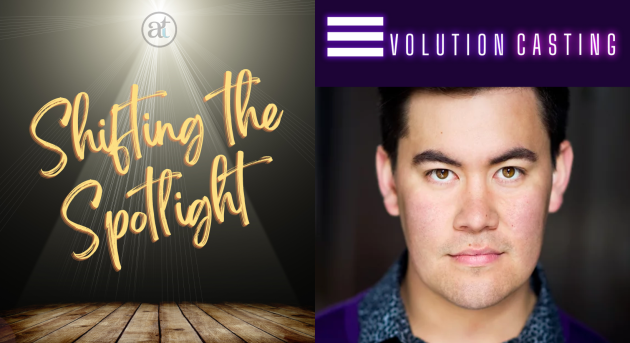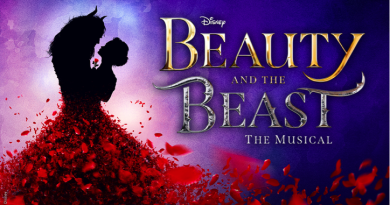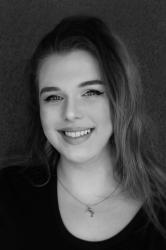Shifting the Spotlight: Rhys Velasquez of Evolution Casting
Shifting the Spotlight is a new feature series aiming to showcase individuals and organisations that are making a positive and active change to the Australian theatre landscape. Our first instalment is with Rhys Velasquez, creative and founder of Evolution Casting.
Born to an immigrant father from the Philippines, and a second-generation White Australian mother, Rhys Velasquez always knew they wanted to work in the arts.

Both their parents were involved in performance at various points in life, be it music or speech and drama. A love for the arts was nurtured, and as a child, Rhys did lots of community theatre, eventually decided that a career in the performing arts was the right path to take. They went on to study a Bachelor of Musical Theatre at the Arts Academy in Ballarat, and ultimately made the move to Melbourne to pursue their dream.
“I always had an interest in casting before I knew it was a job,” they comment. “I remember when I was younger, when scrapbooking was a thing, I would cast my favourite TV shows or musicals that I saw with my friends. And we were so serious about it. It wasn’t until I was at Ballarat that I started to see how the professional world worked, because people in the years above me would be like, ‘Oh, this brief has come through, I might go audition for it.’ And, in first year, I was looking at the briefs and seeing casting director, casting director, casting director… so I started doing a bit more research and thought that’s what I would want to do.”
Alongside performing in an array of professional touring shows, Rhys also did a lot of choreographic work. But at the back of their mind, casting was always a really strong area of interest. “I remember by the time I finished third year [of study], I was pretty set I wasn’t going to perform. I wanted to go into casting. I emailed some of the major casting directors working in musical theatre, and I didn’t get any responses. So I just started going with the flow, I got an agent and was going to auditions and performing, so I thought I’ll just start doing that instead.”
Like with many artists, the 2020 COVID-induced shutdowns forced Rhys to reflect on their career. They were midway through the national tour of Shrek, which was playing at Melbourne’s Her Majesty’s Theatre. The production had made it through approximately three weeks of shows before it was shut down, going on a long hiatus through numerous lockdown periods. Concurrently, there was increasing discourse around the Rob Guest Endowment, with accusations of institutional racism from both current and past contestants being taken public.
All the conversations around diversity, especially surrounding the Rob Guest Endowment… I was there sitting and listening a lot, and trying to insert myself in the conversations, and trying to support people throughout that. There was so much focus about the diversity on stage and on screens, which I agreed with. I was very passionate about it. But I was seeing a common thread. I looked offstage and thought this is the problem, you know. The higher up you go, the less diversity occurs. It’s not happening because these people don’t know how to talk about it. They don’t know how to facilitate it.
Post COVID, Rhys returned to the Brisbane season of Shrek in 2021 before performing in one final production – Altitude Theatre’s Once On This Island. The show was praised not only for its diverse casting, but an equally as diverse production team. “It was a really affirming experience. Bree [Langridge] let us build the characters we wanted. She let me change the gender and performance of this character to be as fluid as the water they controlled. And Kuki [Tipoki] just let me do whatever I wanted with the song. It was one of those experiences where it was so collaborative, so beautiful, and so community based. I remember it was my very last show, I sang my song… it just dawned on me that I’m not going to have an experience like this again and I’m done. I’ve done everything I wanted to do. I’ve performed on all the stages I wanted to, I’ve done all the different tours, I’m good to just step aside.”
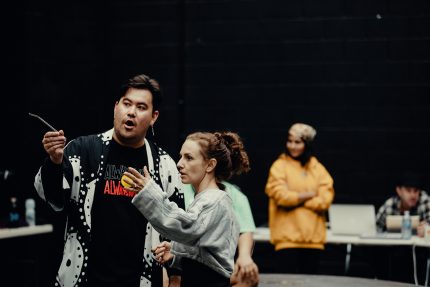
A significant part of why Rhys went into the casting industry and starting Evolution Casting was to remove barriers around performers – being a nonbinary performer of colour, they had faced a fair few barriers of their own in their time in the industry, affording authentic lived experiences that they could bring to the role. They had experienced times where their ‘Asian-ness’ was singled out, times where their identity was pigeonholed, where it truly felt like they would never be able to break out of industry-enforced structures and binaries. “I’ve never been more aware of my ethnicity and my queerness except for in an audition room,” Rhys laments.
Historically, the world of theatre has seen an extremely limited quantity of roles written for or about queer and BIPOC experiences. A large number of those that do exist revert into archetype and stereotype, having been written by artists who do not have the authentic experiences to bring to the characters’ development – shows like Ragtime, Flower Drum Song, and The King And I all explore the experiences of oppressed groups, but were helmed by predominantly white creative teams in their Broadway premieres.
I’ve had some really lovely collaborators and producers that have been really open to this, but I love being one of the first people on the board so that when we do talk about the material that they want to cast, I always ask who’s on the creative team. If you’re dealing with these stories, who’s on the other side of the table? A huge part of Evolution Casting is also helping the producers cast people on the other side of the panel, who should be telling the story on stage and off.
Of course, the theatre is, at its core, fantasy. Even when we are telling authentic stories, lived experiences, recounting history, we are telling it in a format that is stylistic, heightened, and exaggerated. We don’t burst into song at a great moment of emotional distress, we don’t break out into a tap solo when we get excited. While we play in this world of fantasy, it is still important to cast authentically when representing certain communities. Characters in Hairspray, exploring the experiences of the African American community under U.S. segregation laws, should always be played by Black actors. Kushner’s Angels in America fundamentally hinges on queer experiences during the AIDS crisis, and should be cast accordingly. Some shows, like Wicked, exist on a plane of their own, full of this fantasy. At its core, however, it tells the story of a woman ostracised for the colour of her skin (in this case, green), and the unjust treatment that she experiences. On paper, the subtext of this show makes it seem like the perfect opportunity to cast a Indigenous, Bla(c)k, or Performer of Colour, an actor whose lived experience would connect to the experience of Elphaba – but to date the role has only ever been played full time by one Black actor, Alexia Khadime. Rhys views casting to be a powerful tool in bringing theatre into the now and making it relatable to todays audience. While it’s important to cast a Black actor in the role of Celie in The Color Purple, there is no reason that same actor couldn’t play Elle Woods in Legally Blonde. There are many methods of casting (Representative/Inclusive/Conscious Casting) and all are vital to making exciting and contemporary theatre.
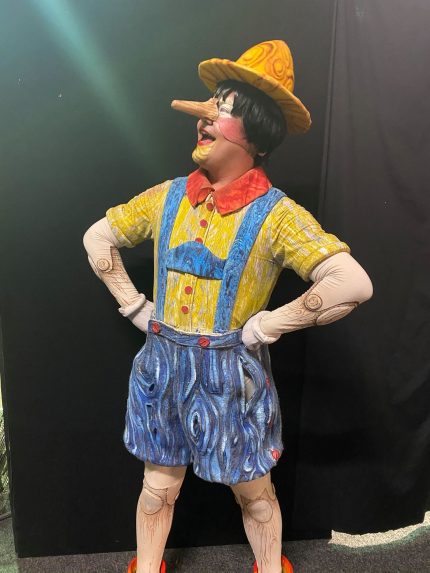
“Every show has the possibility to really start a conversation, even if it’s for entertainment. There’s a chance for every show to be meaningful. And while the conversation isn’t new, the wider population is only starting to have it. The industry is only just starting to take this conversation seriously. I do think we have a lot to go in terms of understanding. The landscape is changing, and you’ve got to keep fighting. That’s what I want. I want producers to think more about how they can still make money bringing something that’s consciously right for this country and its population and history. I remember my Grandma brought home a program from when she saw Chicago, and I saw Christina Tan. And I remember running up to my dad and asking ‘Is Chicago an Asian show?’ And he said no. From that moment, I followed Christina Tan’s career because… there’s this Asian woman that is going into shows that aren’t Miss Saigon. That power of representation is what’s so important now, I think, to get the performers that we want in the future.”
Within the structures of the Theatre industry, there are many barriers to overcome – not just those around inclusion and representation in casting. In beginning to dismantle one, oftentimes many others become more visible. While, in theory, the best step would be to completely start from scratch and rebuild the industry, it is safe to assume that we won’t see this in our lifetime – therefore, these barriers need to constantly be challenged, reconsidered, and broken down within the performance space. “I think what’s happening now is that people are starting to knock those barriers down because they’re starting to notice,” comments Rhys. “That’s what I’m noticing when I’m in the room, I’ll knock down a barrier and people will help me do it. They agree we should get rid of it. That’s the thing I think, especially within our industry right now, we’ve started the conversation. There’s more tension in the U.S. and U.K., but that’s because they started talking about it ten years ago. 2020 was when the conversation launched for us in a more serious way. People have been screaming and shouting for a long time, but it’s been seriously muffled, and now we’re starting to find all the different layers there is to it.”
The aim of Evolution Casting is to fix this, and improve the representation of oppressed and marginalised groups in the arts sphere, on stage or screen, or within production and creative teams. Rhys brings a unique lived experience perspective to their casting and consultancy, tailoring their approach to every individual project by collaborating with producers and teams to create the best version of a production that they possibly can. They provide several different services to creative teams and companies, ranging from casting direction, consultation, and design to training and workshops. Companies can bring Rhys in from the genesis of their production to craft a specific concept and dramaturgical vision, to consult around season programming and material choices, or to oversee or entirely manage the casting process (with a specific focus on Inclusive Casting, Representative Casting and Conscious Casting and educating other creatives on when and how to use these methods). While not an agency, Rhys has a brilliant network of working artists from their time in the industry, providing them a unique advantage within the world of casting and consultation.

“The hardest part of the job is interrogating those structures, and figuring out what structures are there for a reason, which ones should be dismantled, which ones should be burned down, which ones are problematic. That’s the hard thing. And the structures depend on who I’m working with as well, the rules change every single time with what people are willing to let go of. The biggest challenge I’m facing is that sometimes I enter a room and people want me to have all the answers and I can’t. That’s literally impossible.”
Their dedication and passion is clear in our chat, a clear glimmer in their eye sparkling each time they talk about changing the industry. There’s no secret to Rhys’ work, no big agenda. They know the material, they know the industry, they know the artists that are waiting to be cast. And they are making that change with Evolution Casting.
Click here to visit the Evolution Casting website.
AussieTheatre always welcomes a diverse range of voices and perspectives to feature on our site. If you are a performer, creative, or writer interested in contributing to AussieTheatre.com, please visit our Get Involved page.

